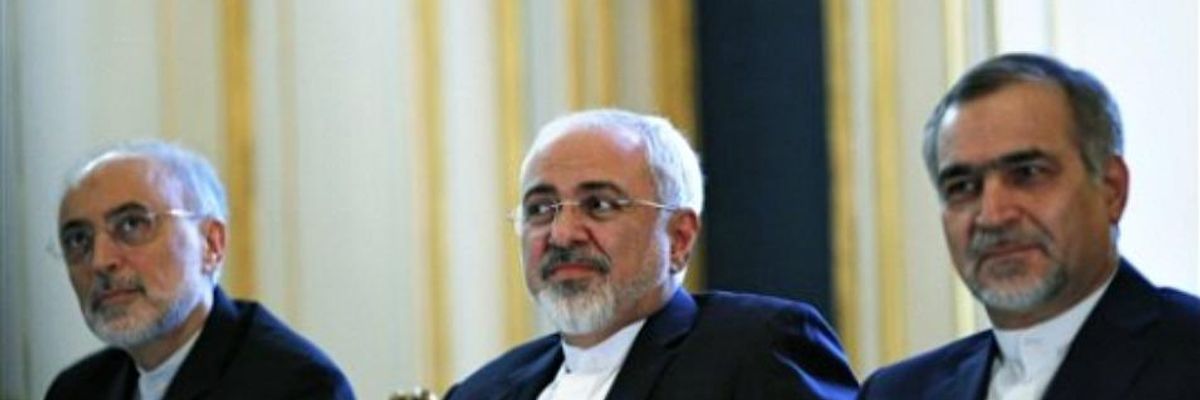U.S. media coverage of the Iran deal is, as usual, overwhelmingly focused on American and Israeli voices, with the hard-liner fanatics in each country issuing apocalyptic decrees, insisting that the deal is far too lenient on Iran and provides it with far too many benefits. Though largely excluded from U.S. media discussions, there is also substantial debate among Iranians about the virtues of the deal, with most viewing it positively due to the economic benefits it is expected to provide, but with many holding the view that it unfairly impinges on Iranian sovereignty in exchange for very few legitimate concessions.
The optimistic Iranian view is grounded in the expectation that the deal will usher in a normalization of relations between Iran and the west, lifting both the sanctions regime and the threat of war. That view was expressed by the ringing endorsement from National Iranian American Council President Trita Parsi, who proclaimed that "diplomacy has triumphed and war is off the table. The United States and Iran have turned the tide on decades of enmity and instead have secured a nuclear deal that promises a better and brighter future." He added that "we now know that the U.S. and Iran need not remain hostile enemies, but can interact with each other to achieve shared interests."
But much Iranian public opinion, while positive, is more nuanced and guarded. Hooshang Amirahmadi, an Iranian-American professor of international relations at Rutgers University (who was one of the individuals targeted for NSA spying), has devoted most of his career to advocating for a normalization of U.S./Iran relations and the lifting of the sanctions regime. To the extent this deal accomplishes that, he said today in an interview with The Intercept, he supports it, though if it ends up confined only to nuclear issues, "then it will be very bad for both countries." Amirahmadi added that the mood in Tehran is, in general, "very happy." Ordinary Iranians, he said, "obviously like what has happened" primarily because "they expect money to arrive, which will help the economy and create jobs."
But he noted several critical caveats. To begin with, expectations among ordinary Iranians are very high: they expect substantial economic improvement, and if that fails to materialize, Amirahmadi sees a likelihood of serious political instability which "could go in a terrible direction for Iran."
Read the rest of the piece at The Intercept.
